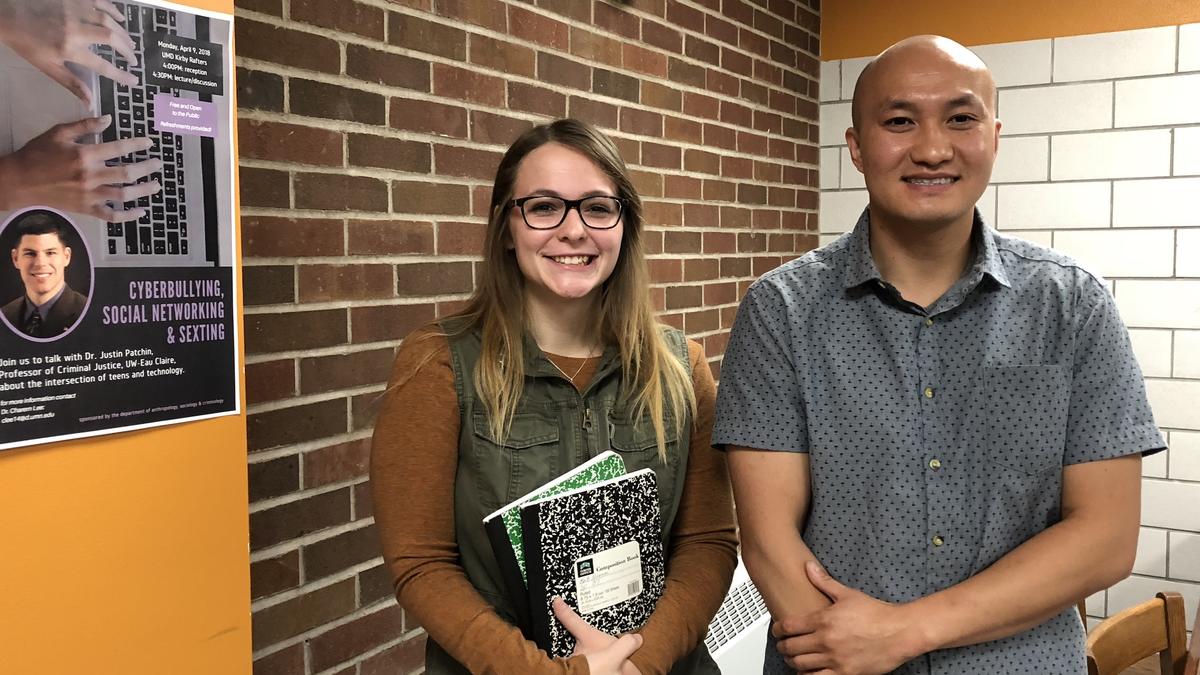Allie Dischinger grew up in the Brainerd Lakes area. In high school, Allie witnessed bullying, and later she noticed the effects it had on the students who were bullied. She remembers seeing one student, who was repeatedly bullied, eventually turn to drug use and acts of theft. It was Allie’s interest in the psychological effects as a result of bullying that brought her to the field of criminology.
In a world where cyberbullying has become a constant behavior, as a result of advancement in technology, there are no safe places for targets. In 2016, the Pew Research Center reported that over 33 percent of teens have been a target of cyberbullying. This form of behavior has a uniquely negative effect on those who are bullied, because it is difficult for targets to escape from their torment. Often, the experience can have long-term negative effects, such as psychological, social, and emotional problems.
Today Allie is majoring in criminology with a double minor in psychology and political science at UMD. She has received multiple scholarships including the Edward Lynse Scholarship and the Charles and Ellora Alliss Scholarship. She is intrigued by the criminal and deviant acts people commit and why they commit them, which made her the perfect student to take on a study to determine the impact of negative emotions on targets of bullying. Now, she has been invited to present the findings of her study at the Midwestern Criminal Justice Association conference in Chicago in late September, 2018.
Allie's support came from Dr. Charern Lee, assistant professor of criminology. Dr. Lee and his colleagues from two other universities already had a wealth of data and information at Allie’s disposal. She zeroed in on the data from surveys of adolescents aged 12-17. They have been working on a study to figure out whether teens who are bullied and cyberbullied, and those who develop negative emotions (e.g., anger and frustration), from such behaviors, are more likely to engage in delinquent activity as a consequence.
Allie says, “While previous studies have examined school bullying and cyberbullying among adolescents, few have explored whether individuals who are bullied and cyberbullied are more likely to engage in delinquent behavior.” Dr. Lee adds, “We also want to discover whether the negative emotions experienced after being victimized have a relationship to a higher risk for delinquency.”
Allie is using general strain theory developed by Robert Agnew to examine the strain and stress on a person, negative emotions developed from strain, and their relationship with delinquency. Dr. Lee assisted Allie in running analyses on the data to figure out the answers to her questions. “I got to take a theory I learned in my criminological theory class and apply that to this research project,” Allie says.
Allie is hooked on criminology research. After graduation she plans to go to graduate school and eventually complete her doctorate. From shrewd observations made in high school to the quest to find out just why people commit the crimes they commit, Allie is on her way to make many more discoveries in her field.
About the Department of Psychology
About the Political Science Program
Photo above: Allie Dischinger and Dr. Charern Lee
